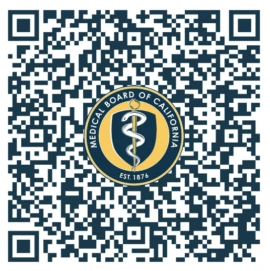Inflammatory Bowel Disease

Inflammatory Bowel Disease:
Insights and Management for Digestive Wellness
What is inflammatory bowel disease?
Inflammatory bowel disease (IBD) is a term that includes several disorders, notably Crohn’s disease and ulcerative colitis, that cause inflammation in your digestive tract.
Inflammatory bowel disease can strike at any age but is more likely to begin before the age of 30. It’s incurable and often severely disabling, and some patients experience life-threatening complications.
However, with expert treatment from the team at Digestive Disease Consultants of Orange County, you can live a long, active life with IBD.
What are the symptoms of IBD?

Patients with Crohn's disease and ulcerative colitis can have symptoms such as:
-
Diarrhea
-
Fever
-
Fatigue
-
Abdominal pain
-
Stomach cramps
-
Bloody stools
-
Diminished appetite
-
Unintentional weight loss
Rectal bleeding always needs to be investigated. It could be due to hemorrhoids, but is also a symptom of both IBD and colorectal cancer. A condition called SIBO (small intestinal bacterial overgrowth) that causes digestive disorders is also associated with IBD.
The Digestive Disease Consultants of Orange County team can diagnose the cause of your symptoms and determine the best course of treatment. The practice also offers lactulose testing for SIBO and testing for Clostridium difficile infection.
What medications are there for IBD?
Anti-inflammatory drugs help reduce the inflammation that triggers your IBD symptoms. Mesalamine and other aminosalicylates are usually the first medication your provider prescribes. You might need to use suppositories or take oral granules.
If your symptoms persist, your provider at Digestive Disease Consultants of Orange County might suggest trying corticosteroids. These are potent anti-inflammatory medications, but they do carry a higher risk of side effects and aren’t recommended for long-term usage.
If anti-inflammatories aren’t helping, you might need to take immune system suppressors like azathioprine and cyclosporine. These medications help reduce the aggressiveness of your immune response, which could be the root cause of the inflammation. Biologics are another kind of medication that suppresses your immune response.

What other treatments are there for IBD?
If your condition becomes severe, you might have to go into hospital and receive parenteral nutrition (nutrients delivered through an IV) or enteral nutrition (nutrition via a feeding tube).
Other types of medication you might need when you have IBD include:
-
Antibiotics (if you develop an infection)
-
Anti-diarrheal medications
-
Acetaminophen (for pain relief)
-
Iron supplements
-
Calcium and vitamin D
When IBD doesn’t respond to any treatments, or you have serious complications, you might require surgery. This could involve your surgeon at Digestive Disease Consultants of Orange County removing the affected section of your digestive tract.
If you have symptoms of IBD, call Digestive Disease Consultants of Orange County today or book an appointment online.


